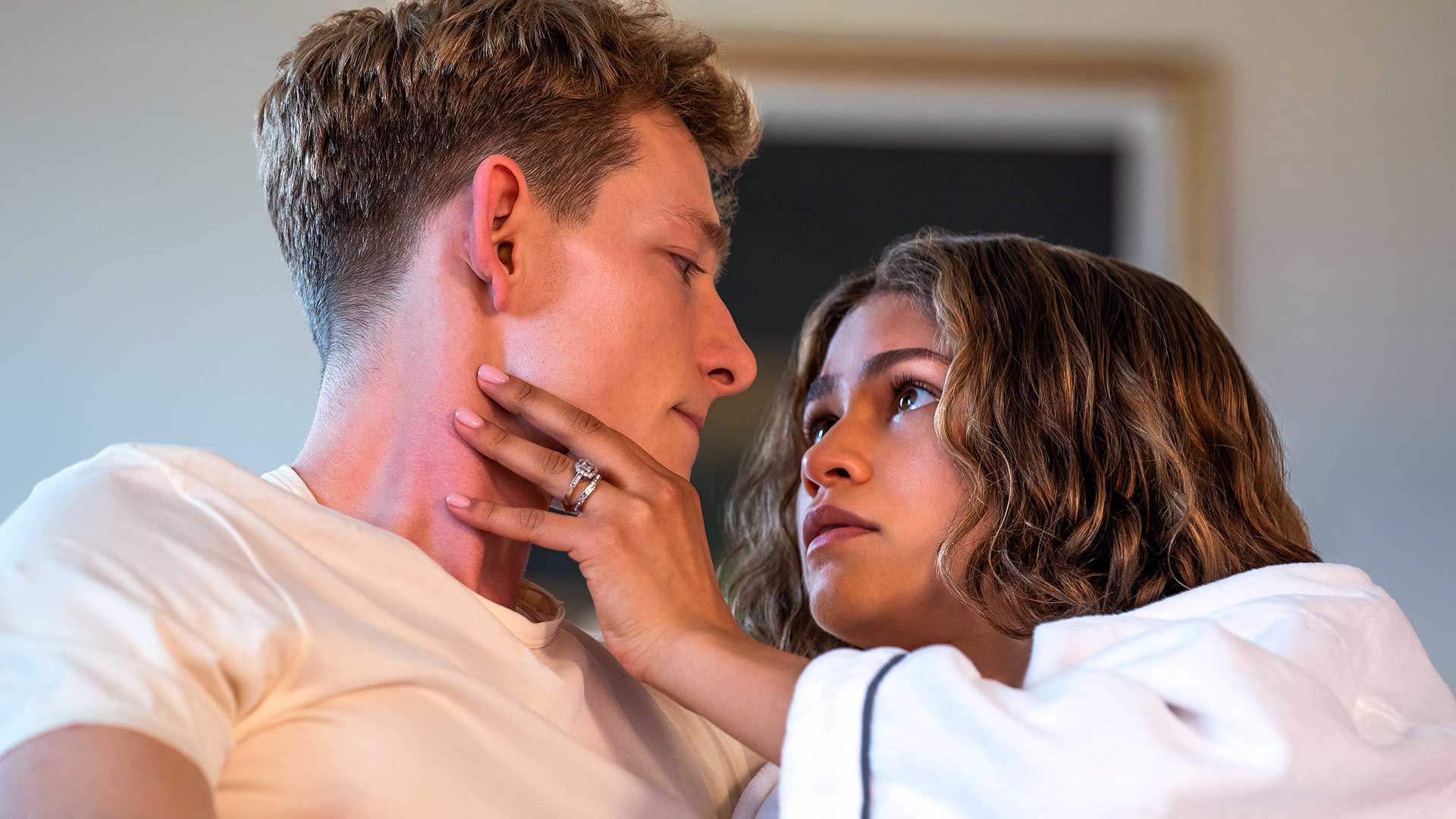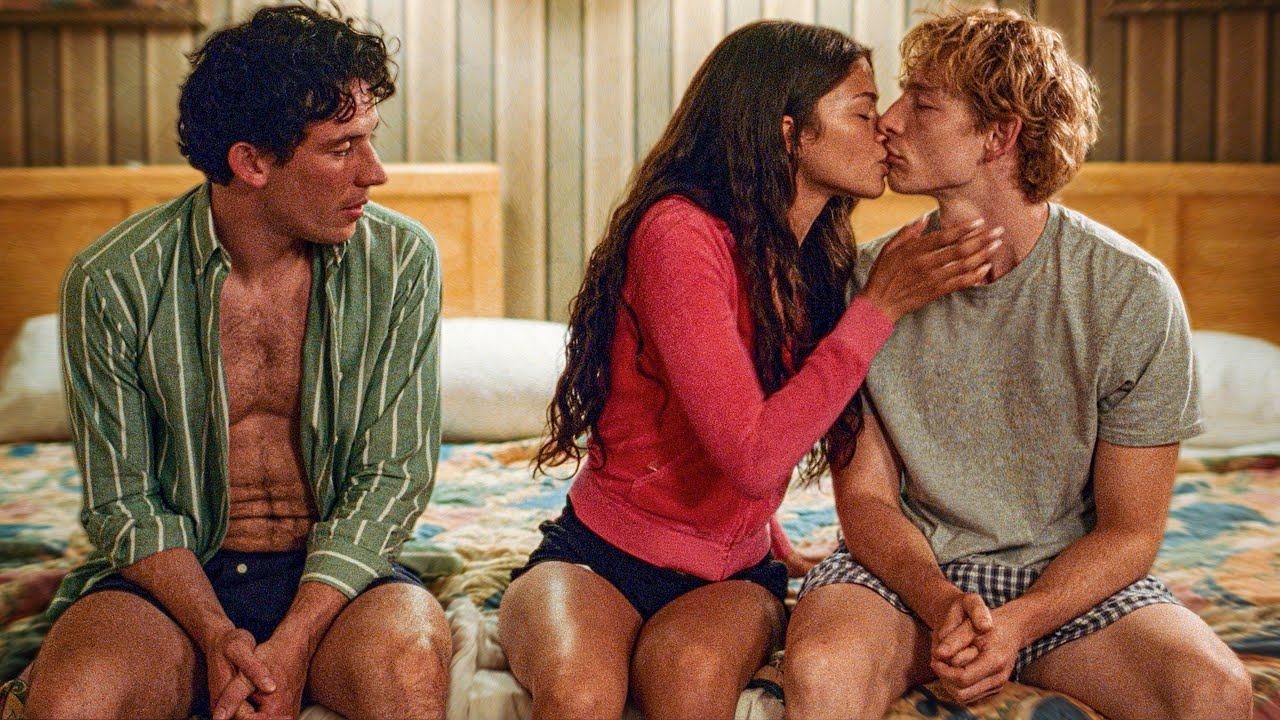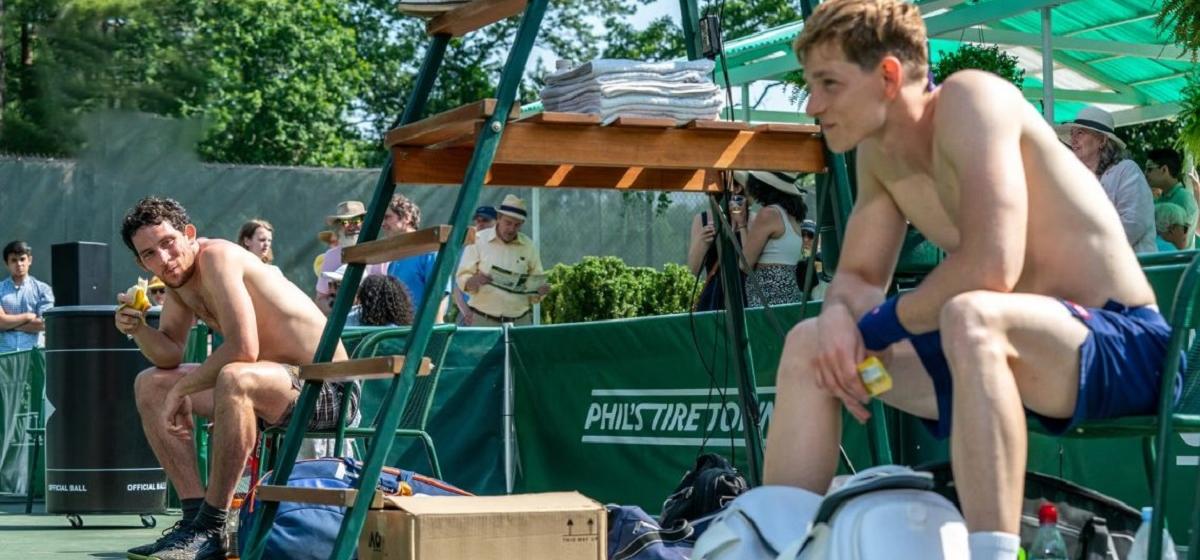Hello, Unicorns! I’m not really a sports girly, I’ve been to a couple of baseball games — mostly for the food. However, when I heard that the new movie featuring Zendaya was about tennis, I was immediately interested. Who doesn’t love Zendaya? There’s been a lot of online buzz about the romantic sports drama Challengers (2024), with many people discussing its portrayal of bisexuality. I knew I had to check it out for the Scale, and to my surprise, I didn’t know tennis could be so entertaining and… sexy! So while I was crushing on the three main characters, invested in the matches, and loving the soundtrack, how did it do in terms of bi rep?
Before we begin, let’s get some things out of the way. First of all, there will be SPOILERS for this movie — so if you hate those, check out the movie and then come back. This movie is rated R due to violent and sexual content, but don’t worry, I’ll keep this light. Finally, if you want to refresh your memory with the details of our rating metric, go here. And also make sure to check out our Media Entry here!
Ready? Serve!
Challengers is directed by Luca Guadagnino, known for movies with emotional complexity, eroticism, and stunning visuals — he also directed Call Me By Your Name (2017) and Bones and All (2022). The movie centers on a decisive match between Art Dolandson (Mike Faist) and Patrick Zwieg (Josh O’Connor). As the film jumps between the past and present, it fills us in on important details between these characters, giving the tennis match an unhinged tension that kept me on the edge of my seat.
We meet Art Donaldson and Patrick Zweig, two intimate friends who have known each other since their teenage years at a tennis boarding school. They were a successful tennis duo known as “Fire and Ice”, and they were also roommates. (OMG, THEY WERE ROOMMATES!)
During a party in their teenage years, they meet Tashi Duncan (Zendaya), a very successful tennis prodigy (side note, wasn’t Zendaya just the perfect cast for this dreamy tennis player?). After some love triangle drama, Patrick and Art stop being friends and Tashi’s career as a professional player is cut short by an unfortunate knee injury.

Jumping to the present, we see that Tashi and Art are married and have a daughter together. Art is a successful tennis player being coached by Tashi but is on a losing streak. With his wife’s advice, he decides to enter a challenger (the second-highest tier of men’s tennis tournaments, a competition with a lower level than what he’s used to), to get his confidence back. We also see that Patrick, in the present, has a troubled life — struggling with money and relationships — and that he enters the same challenger competition.
What I Liked:
The director skillfully tells a story where sex is the conductive thread without explicit sexual content. Instead, we see them playing tennis with close-up shots where the characters are sweating and moaning, furthering the sexual tension. As Zendaya’s character states “Tennis is a relationship.”
Throughout the movie, especially in the flashbacks, there’s a clear sexual tension between Patrick and Art — made very evident to the viewer through some scenes (like that churro scene, omg; or when Patrick grabs Art’s leg in excitement while watching Tashi play).
This was so evident to the audience that it was heart-racing for any queer person watching. I found myself blushing at some scenes and desperately rooting for the two characters to end up together, even though it was never clear if they would. Of course, we don’t need to see explicit behavior to acknowledge that there’s same-sex attraction, which this movie conveys clearly. Bisexual attraction does not have to be expressed in actions; you’re still bi if you have same-sex and different-sex attractions, regardless of the relationships you engage in. I loved seeing this implicit sexual attraction on screen; it was very refreshing and offered a different take on bisexual attraction.
We get a clearer sense of Art and Patrick’s attraction in a flashback scene where the three of them are sitting on a hotel bed, which takes place after the party where Art and Patrick first meet Tashi. After expressing their interest in her, they invite her to their room. Tashi then asks some intrusive questions, wondering if Art and Patrick had ever been involved with each other. Art denies it immediately, but Patrick tells her about teaching Art to masturbate when they were teenagers. After the sexually charged conversation, Tashi initiates contact by leading them to the bed and kissing both of them. The three of them start kissing, seemingly about to engage in what seems to be a threesome, only for Tashi to back off while making Patrick and Art engage in a passionate kiss… interrupted when Tashi leaves. There’s no doubt in that kiss that Art and Patrick are really into each other.

There’s also a scene where we see Patrick looking through Tinder, swiping right on many women and a man, as his preferences are set to “looking for men and women”. This little glimpse, along with his attraction to Art, confirms that Patrick is bi. Subtle as it was, I appreciated that the movie visually acknowledged his bisexuality.
What I Didn’t Like:
Despite all the sexually charged scenes and innuendos, Challengers pulled its punches when it came to giving us clear bi representation. Even though we see an undeniable attraction between Art and Patrick, it’s not addressed or explored further in the movie. Even the Tinder scene, which is our best confirmation that Patrick is bi, was almost a “drive-bis” situation — I could’ve reached for my popcorn and would have missed it. I was digging deep trying to find more bi representation in the movie, but the truth is, the movie did not give much more than a visual attraction between Art and Patrick.
I understand that the movie implicitly plays with sexual attraction and that it was very evidently there, but after Art and Patrick’s kiss, we didn’t get any dialogue or a reaction from either of them. For queer people, this is clearly a bi movie, but for the rest of the world, it comes across as a misunderstanding or a “they were just roommates” situation.
Despite Challengers being set between 2006 and 2019, the word “bi” was not said or hinted at. Not to mention that the confirmed bi character in this movie, Patrick Zweig, perpetuates a lot of bi stereotypes; he’s untrusting, uses sex for his benefit, is unavailable for commitment, and is involved in Tashi cheating on Art.
I was genuinely expecting much more bi rep from what I saw online, but I didn’t get that from the movie. Yes, there’s bisexual attraction from the characters, but bisexuality is not addressed. Don’t get me wrong, the movie is really good, and honestly, I would love anything Zendaya is in. But I was so immersed in the story that halfway through I thought, “Wait! Where’s the bi rep?”

The Rating:
Challengers is a great movie, with amazing cinematography, screenplay, and acting. The story is entertaining and would be a favorite for any tennis fan. The love triangle developed through the lens of tennis is engaging to watch, the characters are well-developed and complex, and the final match is a nail-biter. While Patrick may perpetuate some negative stereotypes, sometimes we love rooting for a messy bi character. Although we didn’t get much in terms of bi representation, Challengers has so much queer-coded attraction that any queer viewer would enjoy it.
